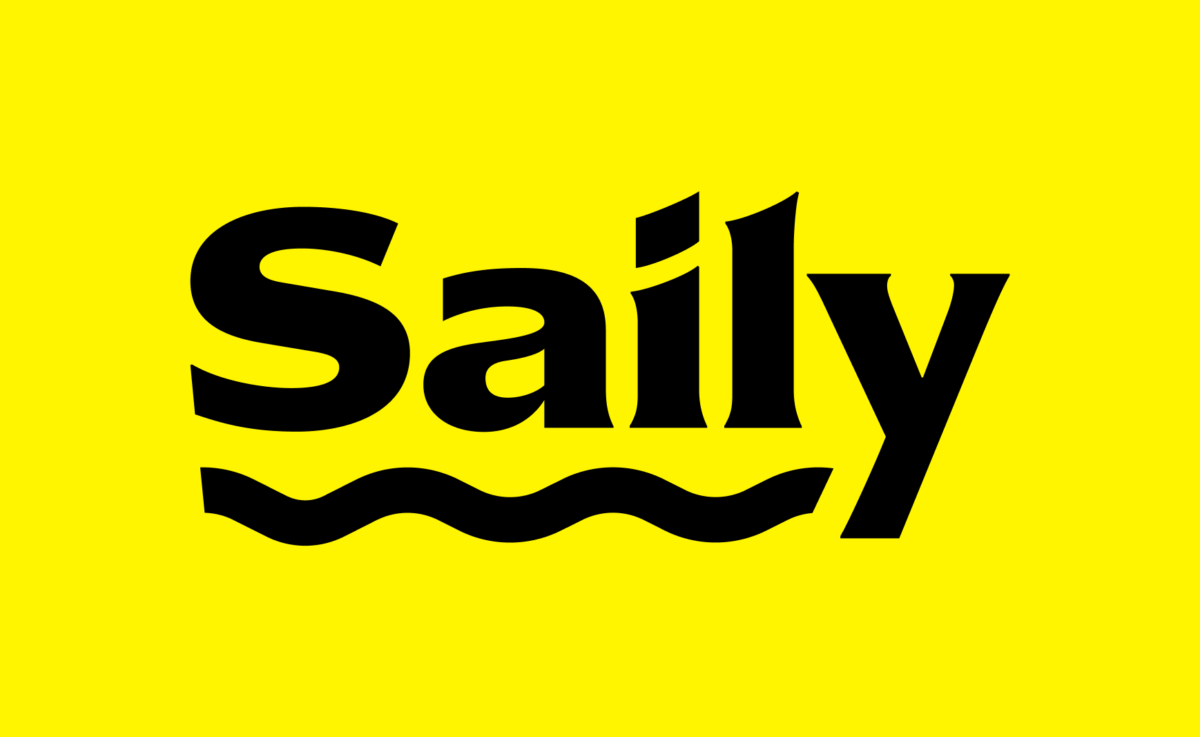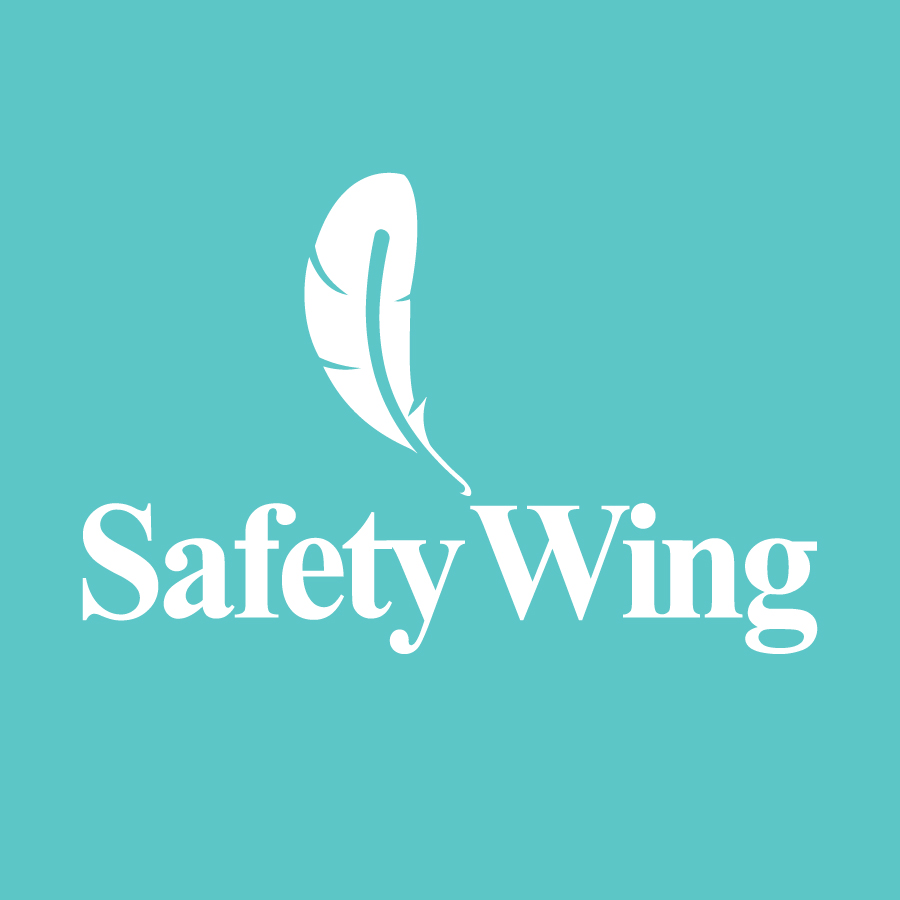
Digital Nomads – 5 Best Places in Ireland
The 5 Best Places for Digital Nomads in Ireland
Ireland offers a fantastic mix of historic charm and modern amenities, making it ideal for digital nomads. You’ll find everything from affordable living to strong internet connectivity. In this guide, you’ll discover The 5 Best Places for Digital Nomads in Ireland!
Expect detailed insights into each location, focusing on expat communities and practical tips for living and working in Ireland. No matter if you’re looking for community vibes or landscapes, these places cater to various preferences and needs. Dive into the specifics to make an informed choice for your next digital nomad destination.
My name is Shannon 🙂
I have been travelling full time for the last decade. I have seen and experienced the most wonderful and mysterious things and incredibly excited to share these adventures with you. I thank my lucky stars that i have found myself in a position that I can give you all the tips and tricks needed for a seamless trip. So pack your bags and lets go!
Affiliate Disclosure: Some of the links on our site are affiliate links, meaning, at no additional cost to you, we may earn a commission if you click through and make a purchase. This helps us to continue providing valuable content and supports our efforts in bringing the travel community together. We only recommend products and services we believe in and think you’ll find useful. Complete details are included in our affiliate disclaimer. Thank you for your support!
In a Hurry? Here's our Key Info for This Article
- Cork is perfect for digital nomads who enjoy a mix of city life and coastal scenery.
- Galway offers a arts scene with reliable internet speeds.
- Limerick is ideal for history buffs and has a strong tech infrastructure.
- Waterford is known for its medieval architecture and friendly coworking spaces.
- Drogheda provides a budget-friendly option with good wifi and proximity to Dublin.
Stay Connected
Things to Do
Essential Apps
Surfshark VPN
Stay safe online and continue accessing all your services just like back home.
Budget Tips
What is a Digital Nomad?
A digital nomad is someone who leverages technology to work remotely while travelling the world. Picture yourself sipping coffee in a café in Bali, typing away on your laptop, all while your office is a beachfront view. Digital nomads often juggle multiple time zones, using co-working spaces and reliable Wi-Fi to stay connected. They value flexibility and freedom, choosing destinations based not only on their allure but also on their internet speed and cost of living. This lifestyle isn’t just about work; it’s about crafting a life that mixes productivity with the excitement of new experiences, cultures, and landscapes.
Other Work Remotely in Europe
The 5 Best Places for Digital Nomads in Ireland
| Destination | Best for | Best Time to Visit | Average Wifi Speeds |
|---|---|---|---|
| Dublin | Networking and Urban Life | May to September | 50-60 Mbps |
| Cork | Cultural Experiences | June to August | 40-50 Mbps |
| Galway | Scenic Beauty and Events | April to October | 35-45 Mbps |
| Limerick | Affordable Living | May to September | 30-40 Mbps |
| Waterford | Historic Sites and Quieter Pace | June to August | 25-35 Mbps |
1. Dublin
Dublin, the capital of Ireland, offers an intriguing mix of history, culture, and modernity. With centuries-old architecture, lively pubs, and a literary heritage, this city has something for everyone.


Top Attractions
Dublin’s top attractions cater to a variety of interests. History buffs will appreciate the iconic Trinity College, home to the ancient Book of Kells. Don’t miss the Dublin Castle, a historic site dating back to the 13th century. For those interested in literature, the Dublin Writers Museum provides a fascinating look at Ireland’s literary giants. The Guinness Storehouse is a must-visit, where you can learn about the history of Ireland’s most famous stout and enjoy a pint with panoramic views of the city. If you’re into green spaces, Phoenix Park offers an expansive area for a leisurely stroll or a picnic.
Best Time to Visit
The best time to visit Dublin is during the late spring and early fall, when the weather is mild and the city’s parks are in full bloom. Summer months bring numerous festivals and outdoor events, but also larger crowds. Winter can be quite chilly and wet, but it’s a great time to experience the cozy pub culture. For those who are wondering if Ireland is safe to travel, take a look at the stats and what t expect when travelling Ireland safely.
Local Cuisines
Dublin’s culinary scene is a delightful mix of traditional Irish fare and modern cuisine. Here are some must-try dishes:
– Irish Stew: A hearty dish made with lamb, potatoes, and vegetables.
– Boxty: Traditional potato pancakes, often served with a variety of fillings.
– Coddle: A comforting stew of sausages, bacon, onions, and potatoes.
– Black and White Pudding: Traditional blood sausages that are a staple in Irish breakfasts.
Budgeting for Dublin
Dublin can be a bit pricey, but you can find affordable options. A mid-range hotel room typically costs around $150 per night. Dining at a mid-tier restaurant will set you back about $20-30 per person. Public transport is efficient, and a one-way ticket costs around $3.
2. Cork
Cork, Ireland’s second-largest city, offers a delightful mix of history, culture, and modern amenities. It is a fantastic destination for digital nomads looking for a balance between work and leisure.


Top Attractions
Cork is brimming with attractions that cater to a variety of interests. Start your adventure at the English Market, a busy food market that has been serving locals since 1788. Stroll along the banks of the River Lee and visit the iconic St. Fin Barre’s Cathedral, a stunning example of Gothic Revival architecture. For those interested in history, the Cork City Gaol offers a fascinating glimpse into 19th-century prison life. Nature lovers shouldn’t miss Fota Wildlife Park, home to a variety of exotic animals in a free-range environment. Lastly, the Crawford Art Gallery is a must-visit for art enthusiasts, featuring a diverse collection of Irish and European art.
Best Time to Visit
The best time to visit Cork is during the late spring and summer months, from May to September, when the weather is mild and the city is alive with festivals and outdoor activities. However, winter brings fewer tourists and a more peaceful atmosphere, though the weather can be quite chilly.
Local Cuisines
Cork’s culinary scene is a delightful mix of traditional Irish fare and modern cuisine. Some must-try dishes include:
– Clonakilty Black Pudding: A and flavorful blood sausage that’s a breakfast staple.
– Drisheen: A traditional type of blood pudding unique to Cork, often served with tripe.
– Cork Butter: Renowned for its creamy texture, it’s a local favorite often enjoyed simply with bread.
– Seafood Chowder: A hearty soup made with fresh local seafood, perfect for a cozy meal.
Budgeting for Cork
Cork offers a range of accommodation options to fit various budgets. Expect to pay around $100-$150 per night for mid-range hotels. Dining at a mid-tier restaurant will cost you approximately $20-$30 per meal. For those on a tighter budget, street food and local eateries offer delicious options at lower prices.
For more information, check out Romania’s digital nomad scene for a comparison of different digital nomad destinations.
3. Galway
Galway, often referred to as Ireland’s cultural heart, is a city known for its lively arts scene, historic architecture, and friendly locals. This city on the west coast boasts a unique mix of traditional and contemporary Irish culture.


Top Attractions
Galway has something for everyone. Start with Eyre Square, a central public space often busy with street performers and local vendors. Next, visit the Spanish Arch, a historical remnant from the 16th century, located near the scenic Claddagh area. For art enthusiasts, the Galway Arts Centre offers a rotating selection of contemporary exhibitions. The Latin Quarter is another must-see, lined with pubs, shops, and eateries, perfect for an afternoon stroll. Don’t miss a visit to the Galway Cathedral, an architectural marvel mixing Renaissance, Romanesque, and Gothic styles. For nature lovers, a trip to Salthill Promenade offers stunning views of Galway Bay, a great spot for a leisurely walk or a dip in the ocean.
Best Time to Visit
The best time to visit Galway is during the summer months from June to August, when the weather is mild and the city is alive with festivals like the Galway International Arts Festival. However, if you prefer fewer crowds, consider visiting in the shoulder seasons of spring (April to May) or autumn (September to October).
Local Cuisines
Galway’s culinary scene is a delightful mix of traditional Irish fare and modern cuisine. Some must-try dishes include:
– Seafood Chowder: A creamy soup filled with fresh local seafood like salmon, haddock, and shellfish.
– Irish Stew: A hearty dish made with lamb, potatoes, carrots, and onions, slow-cooked to perfection.
– Boxty: Traditional Irish potato pancakes, often served with smoked salmon or hearty stews.
– Soda Bread: A staple in Irish households, this dense bread made with baking soda and buttermilk pairs wonderfully with soups and stews.
Budgeting for Galway
Galway offers a range of accommodation options to suit various budgets. Expect to pay around $100-$150 per night for a mid-range hotel. Dining at a mid-tier restaurant will cost you roughly $20-$30 per person. For those on a tighter budget, consider staying in hostels or Airbnb options, which can be more affordable.
This mix of affordability, cultural ess, and scenic beauty makes Galway one of Ireland’s best places for digital nomads and a top contender among the best places for expats and digital nomads.
4. Limerick
Limerick, situated on the banks of the River Shannon, is a city steeped in history and culture. Its medieval past mixes seamlessly with modern life, offering a unique mix of experiences for any traveler.


Top Attractions
King John’s Castle is a must-see, with its impressive fortifications and interactive exhibits. The Hunt Museum houses an eclectic collection of artifacts ranging from ancient to contemporary art. For those who enjoy a stroll, the Milk Market offers local produce and artisan goods every weekend. St. Mary’s Cathedral, dating back to 1168, is another highlight, showcasing Gothic architecture and beautiful stained glass windows. The Limerick City Gallery of Art displays contemporary Irish art, while the nearby People’s Park is perfect for a relaxing afternoon. Limerick is a photographer’s dream! Bring a camera like the Insta360 to capture your full Irish experience.
Best Time to Visit
The ideal time to visit Limerick is during the spring and summer months, from April to September. The weather is mild and pleasant, making it perfect for outdoor activities. However, autumn also offers a quieter experience with fewer crowds.
Local Cuisines
Limerick offers a variety of traditional Irish dishes that are sure to tantalize your taste buds.
– Irish Stew: A hearty dish made with lamb, potatoes, carrots, and onions.
– Boxty Pancakes: Potato pancakes often served with smoked salmon or bacon.
– Black Pudding: A sausage made from pork fat, oatmeal, and blood, usually served at breakfast.
– Barmbrack: A fruit-studded bread, typically enjoyed with butter and tea.
Budgeting for Limerick
In Limerick, you can expect to spend around $80-$150 per night for mid-range accommodations. Meals at mid-tier restaurants will cost approximately $15-$30 per person. For a more budget-friendly trip, consider staying in hostels or guesthouses, which can be as low as $40 per night.
For more insights on digital nomad hotspots in Europe, check out the Digital nomad hotspots in Denmark.
5. Waterford
Waterford, Ireland’s oldest city, offers a unique mix of medieval history and modern amenities. This quaint city is perfect for digital nomads who appreciate a slower pace of life while still having access to essential amenities.


Top Attractions
Waterford is home to a plethora of attractions that cater to various interests. The House of Waterford Crystal provides a fascinating glimpse into the world of crystal craftsmanship, and you can even watch skilled artisans at work. For history buffs, Reginald’s Tower is a must-see; it’s the oldest civic building in Ireland still in continuous use. If you’re more into scenic walks, the Waterford Greenway offers 46 kilometers of stunning landscapes, perfect for cycling or hiking. The Medieval Museum and the Bishop’s Palace are also worth a visit, providing deep dives into Waterford’s storied past.
Best Time to Visit
The best time to visit Waterford is during the summer months, from June to August, when the weather is milder and outdoor activities are more enjoyable. However, visiting in spring or autumn offers fewer crowds and more affordable prices. Winter can be chilly but offers a cozy atmosphere, especially during the festive season.
Local Cuisines
Waterford’s culinary scene is a delightful mix of traditional Irish dishes and modern gastronomy. Here are some must-try dishes:
– Blaa: A soft, white bread roll unique to Waterford, often enjoyed with butter or filled with meats and cheeses.
– Coddle: A comforting stew made with sausages, bacon, potatoes, and onions.
– Boxty: Traditional Irish potato pancakes, often served with sour cream or smoked salmon.
– Dunmore East Seafood Chowder: A and creamy chowder made with fresh seafood from the nearby fishing village of Dunmore East.
Budgeting for Waterford
Waterford offers a range of accommodation options, with nightly costs averaging around $80 for mid-tier hotels. A meal at a mid-tier restaurant typically costs about $25. Overall, Waterford provides affordable living in Ireland, making it an excellent choice for digital nomads.
Packing Guides and Tips
When preparing for your digital nomad adventure in Ireland, efficient packing can make your stay much smoother. Given Ireland’s unpredictable weather, layers are your best friend. A reliable waterproof jacket, sturdy walking shoes, and warm sweaters are essential, especially if you plan to explore places like Galway or Cork. These cities can have sudden showers, so having a compact umbrella on hand is a good idea. Don’t forget to pack some lighter clothing for those rare sunny days. Making sure that you are covered by insurance for any health risks or theft. Safetywing offers great coverage for affordable prices.
Besides clothing, your tech setup needs careful consideration. A high-quality laptop with a long battery life is crucial, as is an external hard drive for backups. Ireland offers good internet connectivity, but a portable Wi-Fi hotspot can be a lifesaver in remote areas. A universal power adapter ensures you can charge your devices without hassle. For co-working in cities like Limerick and Waterford, noise-cancelling headphones can help you stay focused in busy environments.
Lastly, consider the lifestyle and cultural aspects of your stay. A reusable coffee cup and water bottle not only help the environment but also save you money. Ireland is known for its friendly expat communities, so a small gift from your home country can be a nice icebreaker. Remember, packing smart means you’ll have everything you need without overburdening yourself. For more tips, you might find inspiration from our top spots in the UK in which offer similar packing advice tailored to digital nomads.
Digital Nomad Ireland Best Places Concluding Thoughts
Ireland offers a fantastic array of choices for digital nomads. Cork stands out with its cultural scene and remarkable workspaces. Galway, known for its lively arts community, provides an inspiring backdrop for remote work. Limerick, with its growing tech hub, offers ample opportunities for networking and collaboration. Each city has its unique charm, making them ideal spots to set up your digital headquarters.
When considering your next destination, keep in mind the accessibility, community, and amenities each of these places offers. No matter if you’re drawn to Cork’s historical vibe, Galway’s artistic flair, or Limerick’s tech-forward environment, Ireland has something to cater to your professional and personal needs.
Ireland’s Top 5 Digital Nomad Spots FAQ
Some of the top cities for digital nomads in Ireland include Dublin, Cork, Galway, Limerick, and Waterford. Each of these cities offers good internet connectivity, coworking spaces, and a friendly community.
Internet connectivity in Ireland is generally reliable, especially in major cities like Dublin and Cork. Most coworking spaces and cafes offer high-speed Wi-Fi, making it easy to stay connected.
es, Ireland has a growing number of coworking spaces, particularly in cities such as Dublin and Galway. These spaces often come with amenities like meeting rooms, event spaces, and networking opportunities.
The cost of living in Ireland can vary. Dublin is more expensive compared to other cities like Cork or Limerick. However, there are budget-friendly options for accommodation, food, and coworking spaces.
Coworking spaces and tech meetups are excellent places for networking. Cities like Dublin and Cork host regular events and workshops where you can meet fellow digital nomads and locals. Creating a social life while working as a digital nomad is very important for a good work life balance.



















